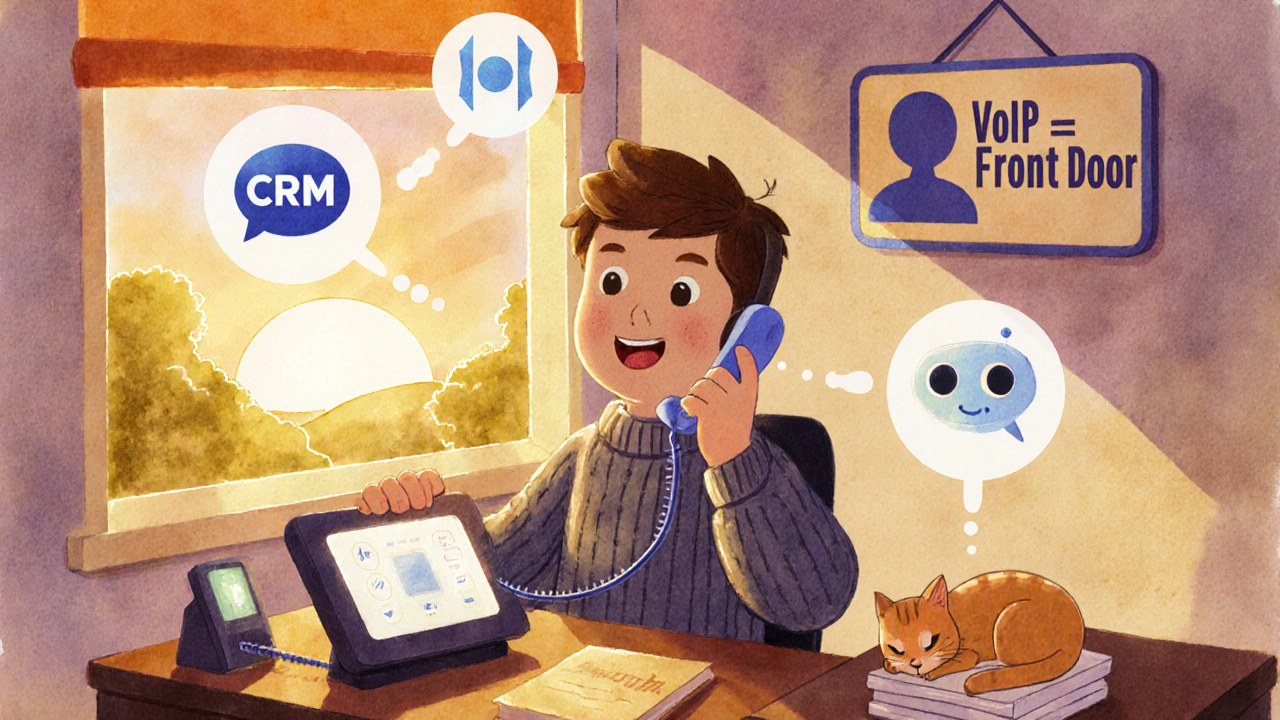Cloud Phone System: What It Is, How It Works, and Why It Saves Businesses Money
When you hear cloud phone system, a business phone system that runs entirely over the internet instead of physical wires and on-site hardware. Also known as cloud VoIP, it lets your team make calls from any device with an internet connection—no landlines, no bulky switches, no expensive upgrades. This isn’t just a trend. Over 70% of small and midsize businesses switched to it in the last five years because it cuts phone bills in half and adds features most companies never knew they needed.
A cloud phone system, a business phone system that runs entirely over the internet instead of physical wires and on-site hardware. Also known as cloud VoIP, it lets your team make calls from any device with an internet connection—no landlines, no bulky switches, no expensive upgrades. This isn’t just a trend. Over 70% of small and midsize businesses switched to it in the last five years because it cuts phone bills in half and adds features most companies never knew they needed.
Unlike old premises-based PBX, a phone system where hardware sits in your office and requires maintenance, upgrades, and dedicated IT staff, a cloud phone system lives in data centers managed by providers. You pay a monthly fee per user, and everything else—call routing, voicemail, conferencing, even call recording—is handled remotely. That means no one needs to fix a broken server at 8 p.m. on a Friday. And if your team works from home, in the field, or across three time zones, they all use the same system with the same features.
The real win? total cost of ownership, the full price of owning a phone system over five years, including hardware, maintenance, support, and upgrades. A traditional PBX might look cheaper upfront, but over five years, cloud VoIP slashes costs by 50 to 75%. You avoid buying $10,000 in phones, wiring, and servers. You skip the annual maintenance contracts. You don’t pay for IT staff to babysit aging hardware. And when you need to add a line or move offices, it takes minutes—not weeks.
It’s not just about saving money. A cloud phone system gives you tools that older systems can’t match: automated call routing, call analytics, integration with CRM tools, and even AI-powered call summaries. You can tag calls, track outcomes, and see which reps close the most deals—all from a dashboard. You can set up an auto-attendant that sounds professional without hiring a receptionist. You can record calls for compliance without buying extra software.
And if you’re worried about security, don’t be. Modern cloud systems use encryption, role-based access, and network segmentation to block toll fraud and data breaches. You don’t need to be a tech expert to use them—just someone who wants to stop overpaying for phone service.
Below, you’ll find real-world guides on how cloud phone systems work, how they compare to old setups, what hidden fees to watch for, and how to pick the right one for your team. Whether you’re a church trying to track donations, a school setting up parent hotlines, or a sales team needing call analytics, there’s a post here that answers your question—no fluff, no jargon, just what works.

